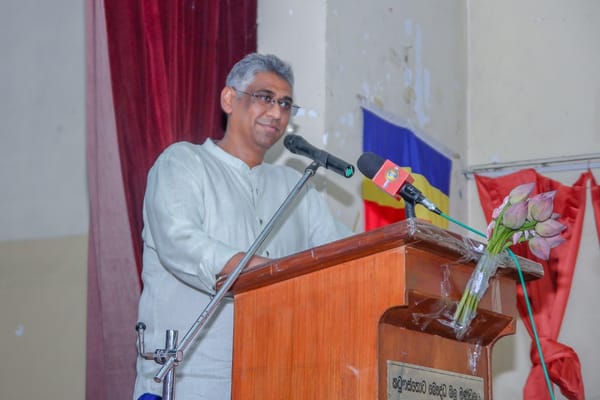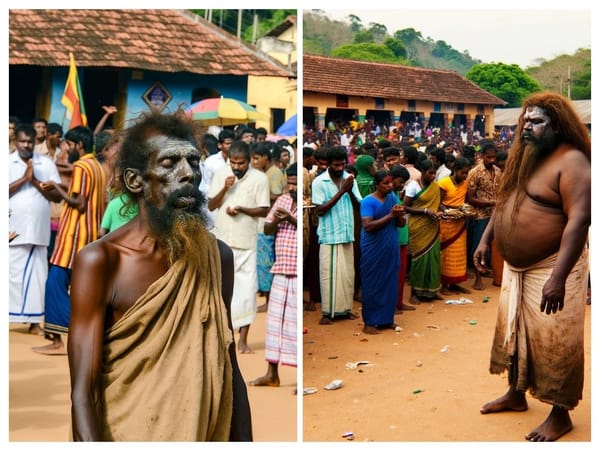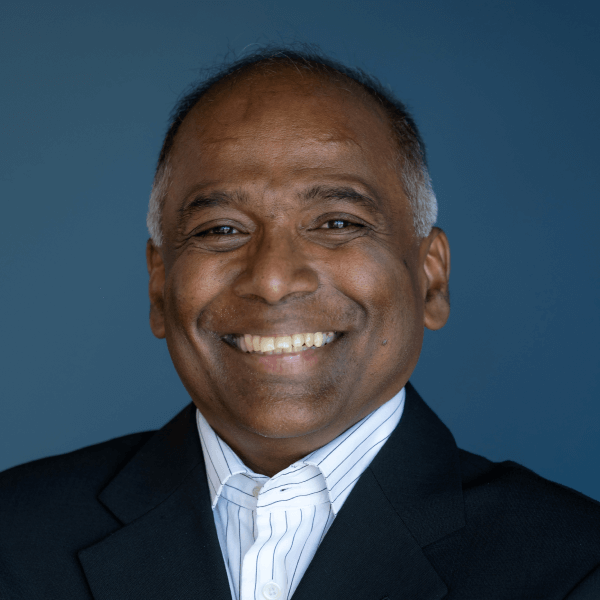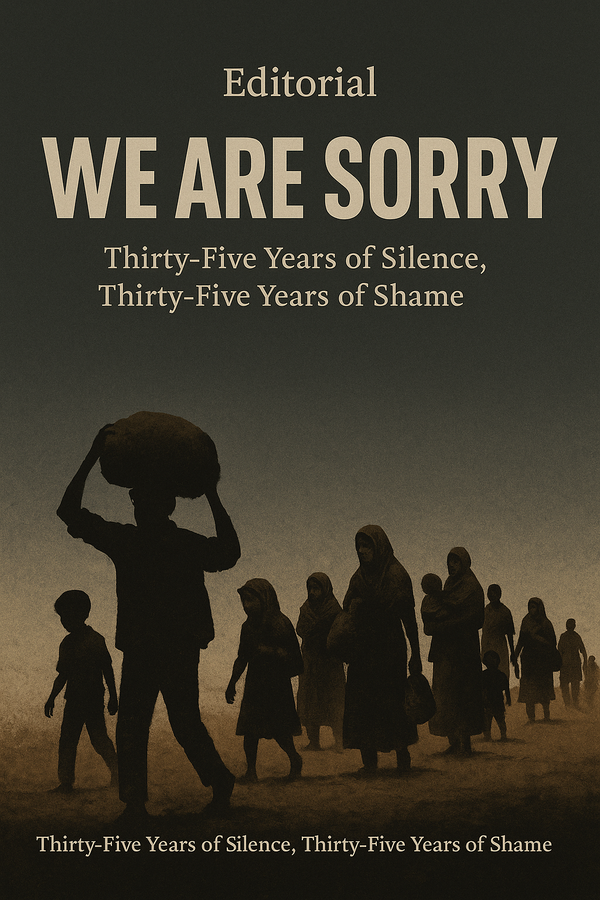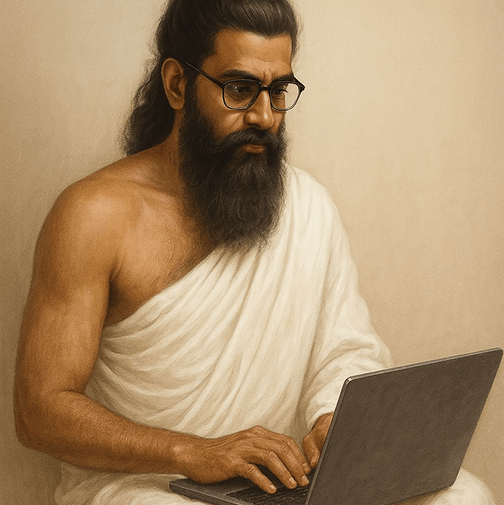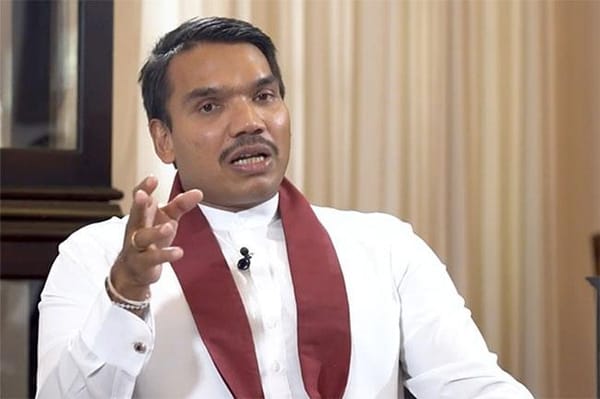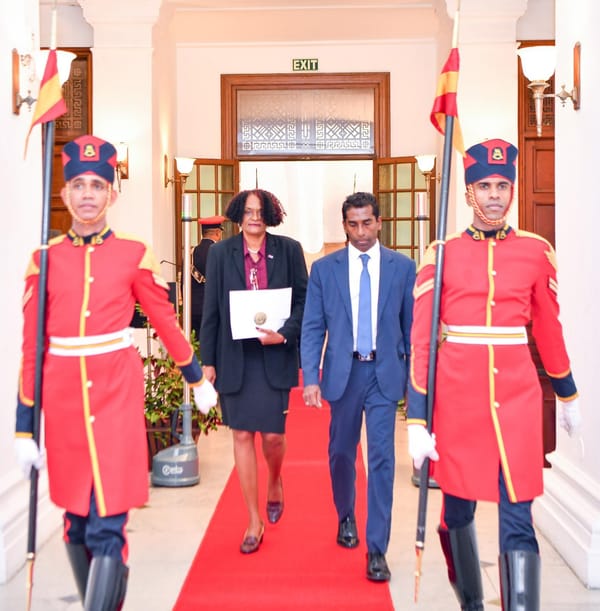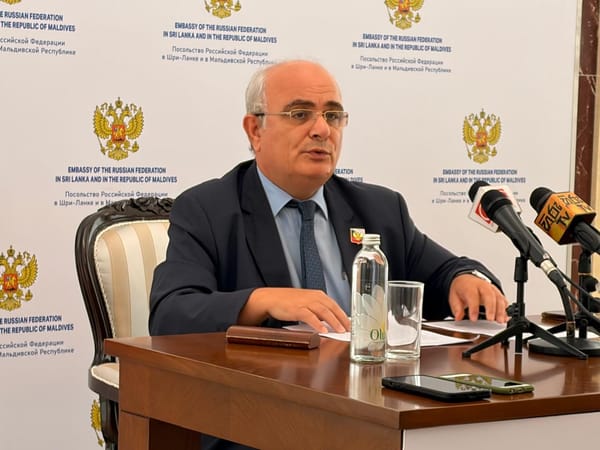At Jaffna Monitor, we believe that meaningful conversations about ethnic representation, national unity, and pluralistic governance are essential for Sri Lanka’s democratic future. For decades, ethnic politics has shaped — and often fractured — the country’s political landscape and the fate of its people. Yet critical questions remain unanswered: What is the most effective path for minority communities to secure their rights and interests? Should minority leaders work within majority-led national parties, or does genuine representation require independent ethnic parties? And how can Sri Lanka build a shared national identity while also respecting the distinct cultural, religious, and political aspirations of its diverse communities?
To explore these questions, we sought out leaders who have chosen different paths in navigating this complex terrain. This interview is part of that effort — to open dialogue, challenge assumptions, and understand the difficult choices minority politicians face.
For this conversation, we spoke in depth with Faiszer Musthapha, MP, a prominent Muslim political leader who has taken an unconventional and less-travelled path. Unlike many of his contemporaries, he has distanced himself from ethnic-based Muslim parties and instead chosen to work within larger, Sinhala-led national parties — a decision that has brought him both criticism and credibility in equal measure.
Beginning his political career with the Ceylon Workers' Congress (CWC) as Vice President, Musthapha has built his political philosophy on the principles of secularism, inclusivity, and cross-community engagement. He has contested and won two consecutive elections in Kandy, notably securing more votes from the majority Sinhala community than from his own Muslim community — a testament to his appeal beyond ethnic lines.
In this candid interview, Musthapha shares his views on the pitfalls of ethnic politics, the challenges of being a minority leader in a national party, and his vision for a Sri Lanka where citizens are united by a common national identity while their diverse identities are respected and protected.
As a minority Muslim leader, you have consciously distanced yourself from ethnic Muslim parties that claim to represent the community, and instead chosen to align with larger national parties, which are predominantly Sinhala-led. Critics argue that such a move risks reducing minority leaders to mere instruments or symbolic figures within a majority framework. How do you justify this choice, and what is your reasoning for why this path ultimately serves your community better?
Obviously, it is easier for a politician who represents an ethnic-based party to articulate the position of their community. But in a country like Sri Lanka, no minority can secure its rights without engaging with the majority community. That is why I believe that working through national parties — even though they are Sinhala-led — creates an opportunity to serve both the country and my community.
Of course, this path is not without difficulties. Entering Parliament through a national party is far more challenging for a minority leader. By contrast, ethnic-based minority parties often rely on a constant narrative of grievance — preaching about how unfair the government or the majority community is. There is little emphasis on governance or service delivery. Their politics is sustained by telling voters they are deprived, discriminated against, and that unity around ethnicity alone will guarantee rights.
I disagree with that approach. I believe the future lies in building a Sri Lankan identity and finding common ground, while still having the courage to articulate the injustices faced by one’s community. That balance is crucial.
That said, there is a genuine problem: minority leaders in national governments have often been used as mere tokens to whitewash injustices, both locally and internationally. Successive governments have showcased Muslim and Tamil ministers as evidence that minorities were being treated fairly, even at times when grave injustices were taking place. We saw this during the war, when Tamil politicians in government were accused of betraying their people. We saw it again when Dr. Shafi was vilified simply for being a Muslim, while Muslim ministers in government stayed silent. And during COVID-19, when Muslims were forced to cremate their dead against their religious beliefs, some Muslim ministers went so far as to defend the government’s position more aggressively than Sinhala leaders — even claiming it was an ‘unknown virus’ to justify the cremations. To me, that was a betrayal — leaders selling out their community for personal gain.
So yes, the challenge is real. Minority leaders in national parties risk being subservient or co-opted. But I have always believed that if you choose to be in a national party, your duty is to articulate your community’s position fearlessly whenever injustice occurs. National parties, for their part, must create the space and respect for minority voices within their ranks — allowing them to speak, dissent, and demand justice without fear of being sidelined. Only then can minority politicians in national politics prove that they are not mere tools, but genuine representatives of both their communities and the larger Sri Lankan identity.
In your view, what is the real difference between a minority politician or a minority party that enters into coalitions with whichever national party is in power—often in exchange for ministerial posts or positions—and a minority leader like yourself who chooses to work directly within a national party? How do these two approaches differ in principle and in practice?
If you look at all the main Muslim minority parties, they have a history of joining whichever side comes to power and accepting ministerial positions without any shame. Before an election, they may be part of a coalition vehemently opposing the party that eventually forms the government, but the moment the results are out, they switch sides, take portfolios, and behave as though nothing happened. Worse still, they often attempt to justify this turncoat behavior with lofty rhetoric or philosophy. To me, that is highly immoral. When you contest an election under a particular party or coalition, you are bound by its program, manifesto, and pledge to the people. Abandoning that immediately after defeat undermines trust and makes every minority community look compromised in the eyes of the majority.
This repeated practice, especially within the Muslim political sphere, has caused our community to lose credibility. In fairness, I must acknowledge that the Tamil community — except in the upcountry — has generally followed more principled politics. Very rarely do we see Tamil leaders crossing over simply to secure ministerial portfolios. In my opinion, many of them have served their communities better by remaining in opposition and consistently raising issues rather than trading principles for positions.
So the real question is, what is the purpose of joining a government as a minority party if you cannot deliver justice to your community? Other than the case of M. H. M. Ashraff, I cannot point to any Muslim party or leader who joined the government and was later able to credibly say: ‘By entering government, we achieved far more than we would have by staying in opposition.’ The record simply does not support that claim. And that, in my view, is the fundamental difference.
You’ve said that minority leaders within majority parties are often exploited or used as tools. Have you ever personally felt that you were being used in that way?
There have been instances where I felt pressure. At certain times, particularly during press conferences, I was asked to express views that went against my conscience — and I declined. I was not willing to compromise in that way.
Unfortunately, not all minority politicians have taken the same stand. During COVID, for example, when Muslims were being forcibly cremated, some Muslim MPs in Parliament went to the extent of publicly justifying it. To me, that was deeply wrong — it amounted to prosecuting their own community just to stay in the good books of the government.
This is exactly the danger I spoke about earlier: when minority leaders are co-opted or used as tools, they risk betraying their people instead of defending them.
As someone who values inclusivity and a secular mindset, how would you assess the challenges faced by minority politicians with similar principles when they engage in national politics?
Firstly, for a minority politician with an inclusive and secular outlook, earning respect and votes from the majority community is far more difficult than securing support from one’s own community. Within your own community, you can simply propagate the narrative of being unfairly treated and claim you will fight for their rights — and many will vote for you on that basis. But I firmly believe that if you genuinely work for the people, citizens across all ethnicities will support you.
In fact, from my own experience contesting and winning two consecutive elections in Kandy, I received more votes from the majority community than from my own. To me, that proves that once you win the trust and affection of the majority, you can accomplish much more for your own community as well. Unfortunately, too many minority politicians hesitate to reach out to the majority and remain confined to grievance-based politics.
Today, Sri Lanka is also facing many challenges on the international front. Internally, we must raise issues of injustice — whether enforced disappearances or atrocities committed against minorities — but we must do so by engaging with our own government and political system. There is little point in constantly shouting at the international community. We should say to our own government: ‘We are equal citizens. Injustices have been committed. Please look into these and bring the perpetrators to account.’ That approach, I believe, is more constructive.
Relying on the international community to solve our problems is misguided. International actors often use human rights selectively, to criticize others while ignoring abuses in their own regimes. Gaza is a prime example: more than 70,000 people have been killed there, yet the world’s response shows how political interests often outweigh justice. This is why, in Sri Lanka, minorities should engage within the system — to protect our country’s stature internationally, while still fearlessly raising the injustices our communities face.
Some critics might argue that, rather than joining a majority government or aligning with a Muslim party, a leader could remain neutral and still fight for the rights of the Muslim community. How would you respond to that counterpoint?
Under our parliamentary system, it is simply not possible to remain neutral and still enter Parliament. As an independent, your chances are extremely limited.
The truth is, minorities everywhere in the world face difficulties and must work harder. Sri Lanka is no exception, though I would argue that minorities here do not face the same level of systemic challenges seen elsewhere. With genuine dialogue, most issues can be resolved. If you look back at our history, all three communities — Sinhalese, Tamils, and Muslims — fought together for independence. But once independence was won, chauvinistic politics took over. Race and religion became the easiest route to capture power.
I started my career with the Ceylon Workers’ Congress (CWC), a trade union, where I served as Vice President. For me, engaging with the majority community and working within national parties is the right approach, even if it is a rough road.
The alternative — forming communal parties — is much easier, because you only depend on your own community’s votes and sustain your politics by constantly saying ‘we are unfairly treated.’ But what has that really achieved for Muslims? Apart from M. H. M. Ashraff, who secured major institutions like a university and a port, no Muslim leader has been able to show significant gains for the community. After Ashraff, the SLMC fragmented, with everyone wanting to be leader, and the real achievements stopped.
At the same time, we must also be fair: the blame does not rest solely on minority politicians. National parties too bear responsibility. If Muslims and Tamils had been treated fairly, there would have been no need to create ethnic parties in the North and East. In fact, before independence, and even for some years after, national parties had a strong presence in those regions. But when people in the North and East felt ignored and their voices unheard, they turned to their own ethnic parties.
So the reality is this: the creation of minority parties is not only the fault of minority politicians. It is equally the failure of national parties, which did not give fair attention or representation to those communities. That imbalance is what created the political divisions we see today.
In your view, what are the dangers that ethnic politics and ethnic-based parties pose to the very communities they claim to represent?
Outside the North and East, Muslims and Tamils live in almost every part of the country. Yet Muslim ethnic parties largely focus only on the North and East, and by doing so, they weaken our collective representation elsewhere. My concern is that by relying on ethnic parties, we are losing our voice in the broader national conversation.
The reality is that an ethnic party wins elections primarily on the votes of its own community. Very rarely will members of another community cast their vote for such a party. By contrast, if I contest from a national party and win, it is with the support of all communities. That gives my voice a different kind of legitimacy.
Take the example of Rauff Hakeem. He has contested and won in Kandy many times, often as part of larger coalitions such as the NUA, UNF, or SJB. But because he represents an ethnic party — the Sri Lanka Muslim Congress — he cannot be seen as the voice of all people. His mandate is tied to his ethnicity, and his primary responsibility is to articulate the position of that community.
Whereas a politician who contests from a national party carries greater responsibility: to represent all citizens and to address issues that cut across ethnic lines. Such leaders are respected not just as spokesmen for one community, but as voices for common national concerns. That is the crucial difference.
Some argue that ethnic-based parties have, over time, contributed to the radicalization of both Tamils and Muslims. Do you agree with this assessment?
The real problem with ethnic-based parties is that their politics is built almost entirely on the message that their communities are being treated unfairly. They rarely articulate common issues like poverty alleviation, healthcare, or education in a way that unites people. And even when they do raise these issues, it is usually framed as ‘the government is not giving enough to our community.’
Take the post-war period in 2009. President Mahinda Rajapaksa carried out extensive development in the North and East. Roads, infrastructure, and buildings were constructed. But despite all that, he could not win the hearts and minds of the Tamil people. His biggest mistake was this: he managed to geographically unite the North, East, and South, but he did not emotionally or politically unite the country. Development alone cannot deliver reconciliation if you do not build trust.
Similarly, Gotabaya Rajapaksa, during COVID, took a hardline decision to cremate Muslim bodies against their religious beliefs. He thought such a stance would consolidate his power. Muslims, Tamils, and even Sinhalese eventually united against him, and his politics collapsed. He was forced to leave office and even flee the country. This shows that racism or chauvinism may offer short-term gains, but they are always short-lived.
Contrast that with the NPP. When they opened a single road in the North, it won the goodwill and trust of the people there — at least temporarily. It showed that symbolic gestures of inclusion matter. Unfortunately, they could not sustain that momentum and eventually lost ground in the local elections.
The lesson is clear: it is not just about development projects. Winning the trust, confidence, and love of minority communities is just as important. National parties must reach out sincerely to Muslims and Tamils, just as minority communities must also engage with the majority. Only through mutual trust-building can we move forward as one country. Development without trust will never translate into lasting political support.
Some argue that the Sri Lankan Constitution itself carries a bias by giving prominence to Buddhism, and therefore, working with majority parties will never truly address minority concerns. How would you respond to that viewpoint?
Yes, the Constitution gives Buddhism the foremost place. But at the same time, it also recognizes and protects the rights of other communities. To me, acknowledging the religion of the majority is not the same as disrespecting the minorities. Sri Lanka is a country where about 70% of the population are Sinhala Buddhists, and I see the Constitution’s provision as a recognition of that fact, not as an instrument of discrimination.
Of course, you can criticize the text if you wish, but in practice, I don’t see it as diminishing the rights of other communities. In fact, if you compare with many other countries, minorities in Sri Lanka are still better off. Yes, we do face issues, but today you can walk freely in Colombo, Kandy, or Jaffna without persecution, harassment, or checkpoints. That was not the case during the war years. If we continue to live in that war-era mindset, constantly revisiting riots or past grievances without moving forward, then we will never grow as a nation.
What we should focus on now is building a common Sri Lankan identity. In my view, there should be no quotas or privileges based on ethnicity — everyone should be treated equally. We must engage and sort out our issues within the system, not by deepening divisions. The real question is: are we, as minorities, better off here than in many other jurisdictions? I believe the answer is yes. And if we show compassion to the majority community, they will respond with compassion as well.
We must also respect cultural choices: just as a woman has the right to wear a short skirt, a Muslim woman has the right to wear an abaya or cover her head. Unfortunately, racism here was once propagated to the point that a man with a beard or a woman in a headscarf was immediately branded as a terrorist. That kind of state-sponsored prejudice set us back badly.
For Sri Lanka to move forward, we need to abandon such thinking. True progress comes from respecting each other’s cultures, treating all citizens equally, and embracing a shared national identity while allowing space for diversity.
Why have Muslim leaders — whether from Muslim parties or from national parties — not come together to form a genuine opposition bloc to collectively demand rights and concessions from the government?
I believe consensus is always possible on issues, but unfortunately Muslim politics in Sri Lanka has often been personality-driven. Too many leaders have tried to rally the community around themselves, which makes it harder to form a united front.
That said, during COVID, we did see the Muslim community come together in one voice against the government’s forced cremation policy. Politicians, civil society, and community groups united — except for the Muslim ministers who were then in government. I personally went to court to challenge the attempt to cremate a 20-day-old Muslim child, when around 190 other countries had allowed burials.
I said then, and I still maintain now, that this policy was not about science or health. It was a deliberate decision by President Gotabaya Rajapaksa to teach the Muslim community a lesson because they did not vote for him.
Politicians from minority communities who choose to work within national parties are often accused of being isolated — either for not truly representing minority interests or for serving as mere tools of the majority government. How do you respond to such criticism, particularly when it comes from within the Muslim community itself? And don’t you think it becomes much easier for an ethnic-based Muslim leader to discredit you as a stooge of the majority government?
When Mr. Sampanthan tried to raise the national flag, he was discredited by hardline Tamil leaders. In the same way, when minority leaders like myself work within government, we are often judged harshly, even when we deliver for our communities. I have helped my community in many ways, but I am not someone who thrives on publicity. Unfortunately, many minority politicians think they must constantly project themselves as saviors of their community — using media and social media to show how loudly they are fighting for their people. That may help their political image, but it doesn’t build long-term trust.
I take a different view. For me, politics is not about a ‘media dance.’ It is about engaging all communities, solving real issues, and raising the concerns of my community with courage when injustice occurs. But it also means not alienating the Sinhala majority. Because at the end of the day, no minority politician can solve ethnic issues without earning the trust and confidence of the majority community. If they see you only as a communal leader, they will hesitate to deal with you for fear of their own community’s backlash. But if they see you as someone respected across communities, they will engage with you, even on sensitive issues. That is how progress is made.
We must also accept that politics involves negotiation and compromise. There are times to speak out publicly, and times to work quietly to build consensus. After the Easter Sunday attacks, for example, the entire Muslim community was unfairly stigmatized because of the actions of a few misguided youths. Thousands were arrested, thousands detained. That period created enormous fear and suspicion. It took great effort and time to overcome that fear. The lesson is clear: we need dialogue, patience, and trust-building.
At the end of the day, we must sit together — Sinhalese, Tamils, and Muslims — and move forward as one country. Only then will minority leaders be able to serve their communities without being reduced to symbols or scapegoats.

